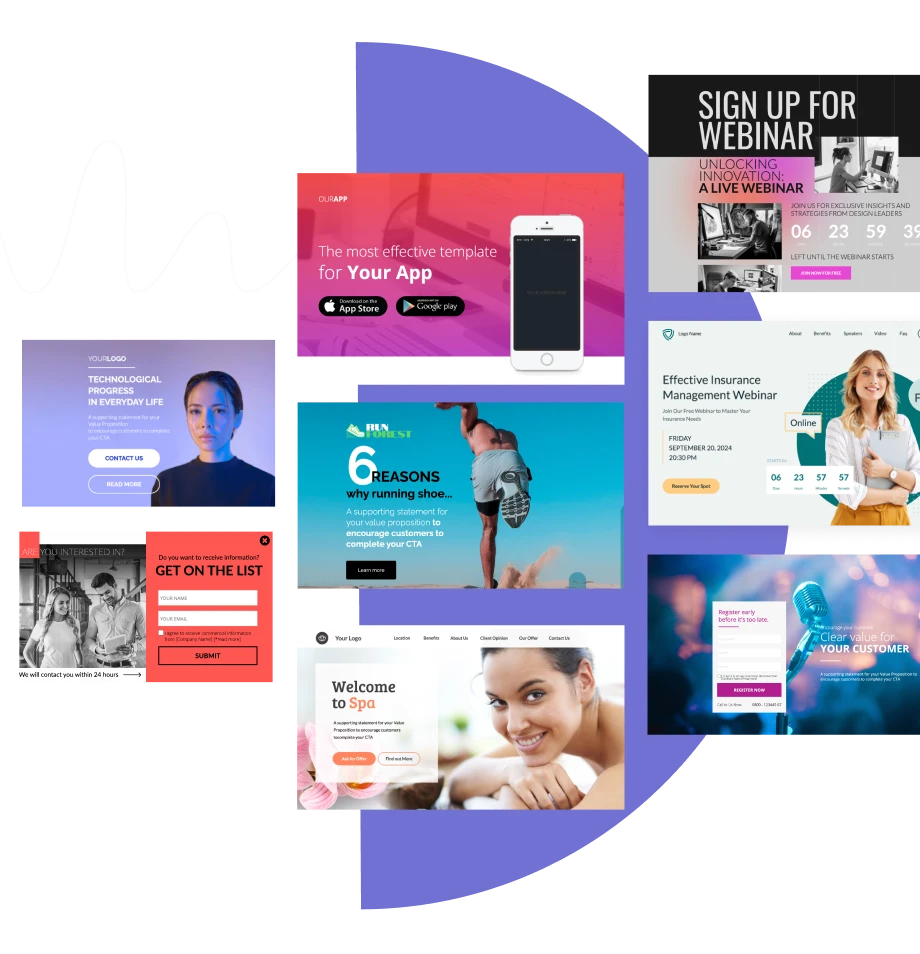Digital marketing vs data analytics – two terms often confused with a few points in common and a bunch of essential differences in between. Read this post and learn how both terms are defined, what their mutual relationship is, and what skills are required to go pro in related professions. For a good start just two quick stats showing why you should get serious about all of this:
- in 2024, the global digital advertising and marketing market is expected to hit $667 billion, with projections estimating a rise to $786.2 billion by 2026 (as reported by Wordstream),
- almost 92% of companies achieved additional value from professional data analytics investments in 2023 (NewVantage Partners data).
Dive in and discover what kind of benefits you can expect from involving both activities in your business, or, if you cannot implement both, which one can turn out to be a better choice for your company.
Key Takeaways:
- Data analytics focuses on analyzing data with analytics tools and expert interpretation to extract insights that help optimize business operations and strategies across different company departments.
- Digital marketing focuses on promoting products/services through various online channels like social media, content marketing, search engines, and email advertising.
- The future of digital marketing and data analytics is connected to the ongoing AI revolution, data privacy challenges, and the implementation of new technologies, all to support informed business decision-making.
- Key differences between digital marketer and data analyst professions comprise the following ones:
| Aspects | Digital Marketing Job | Data Analytics Job |
| Primary focus | Promoting products/services through online channels. | Gathering and analyzing data to inform business decisions. |
| Skill sets | Gathering and analyzing data to inform business decisions. | Data analysis, programming (SQL, Python), statistical modeling. |
| Key responsibilities | Executing and optimizing digital campaigns, content creation, etc. | Analyzing data, creating reports, building predictive models. |
| Tools used | Google Ads, Facebook Ads Manager, HubSpot, SEMrush. | Python, SQL, Excel, Tableau, Google Data Studio. |
| Work output | Marketing campaigns, social media posts, email newsletters. | Reports, dashboards, data models. |
| Measurement of success | CTR, conversion rates, ROI, engagement metrics. | Quality of insights, accuracy of predictions, business impact. |
| Nature of work | Creative strategy, real-time campaign adjustments, content development. | Technical problem-solving, data processing, statistical analysis. |
| Team interaction | Works with content creators, designers, and sales teams. | Collaborates with various departments (marketing, finance, IT). |
| Career paths | Digital Marketing Manager, SEO Specialist, Content Strategist. | Data Scientist, Business Intelligence Analyst, Machine Learning Engineer. |
| Educational background | Degrees in marketing, communications, business. | Degrees in statistics, computer science, economics. |
Let’s get to it!

What is Digital Marketing?
Digital marketing refers to the use of digital channels, platforms, and technologies to promote products, services, or brands to a target audience. It encompasses a wide range of online activities that help businesses connect with potential customers, build brand awareness, and drive sales through various digital touchpoints. Digital marketing is data-driven in its nature, allowing for precise targeting and personalized messaging.
Some common digital marketing tactics include:
- Search Engine Optimization (SEO) – optimizing websites to rank higher in search engine results to attract organic traffic,
- Pay-Per-Click (PPC) Advertising – running paid ads on platforms like Google or social media, where advertisers pay each time the ad is clicked,
- Social Media Marketing: – using platforms such as Facebook, Instagram, and LinkedIn to engage with users and promote content,
- Email Marketing – sending targeted email campaigns to communicate with prospects or customers,
- Content Marketing – creating valuable content like blogs, videos, or infographics to attract and engage an audience.
- Affiliate Marketing – partnering with other companies or influencers who promote your products for a commission.
Digital marketing is super-flexible and constantly adapts to evolving market needs. S. S. Veleva and A. I. Tsvetanova (2020) define its core as follows:
Thus, digital marketing strategies, techniques, and tools change and are developed all the time (unlike traditional marketing campaigns, which remain relatively the same).
What is Data Analytics?
Data analytics is the process of examining and interpreting raw data to uncover patterns, trends, and insights that can inform business decisions. It involves using statistical techniques, algorithms, and software tools to analyze data sets, allowing organizations to make data-driven decisions that enhance performance, optimize processes, and improve customer experiences. In marketing, data analytics is often used to measure campaign effectiveness and identify areas for improvement.
Key aspects of data analytics include:
- Descriptive analytics – summarizing historical data to understand what has happened over a period of time,
- Predictive analytics – using historical data to forecast future trends or behaviors,
- Prescriptive analytics – providing recommendations for future actions based on the analysis of data,
- Data visualization – presenting data in visual formats, such as graphs or charts, to make complex information easier to understand,
- Real-time analytics – analyzing data as it is generated to make immediate decisions.
10 Key Differences between Digital Marketing Job and Data Analytics Job
Analytics and data analysis jobs differ much from positions related to digital marketing, especially in terms of their key focus, required skills, essential responsibilities, typical tools used in daily operations, outcomes, and a way of measuring success. Let’s cover these and some additional differences to give you a comprehensive understanding of the key contrasts between these two professions.
1. Primary Focus
Digital marketing primarily focuses on promoting products or services through various online channels, including:
- search engines (like Google or Bing),
- social media (like Facebook, Instagram or TikTok),
- landing pages (e.g., sign-up pages, PPC pages, splash pages, event pages, etc.),
- email marketing (for instance: newsletters, product updates, notifications),
- and paid campaigns (in Google Ads, Microsoft Advertising and similar PPC networks).
The goal is to attract, engage, and convert potential customers using creative strategies and content-driven campaigns.
Instead, the core of the data analytics job is gathering, cleaning, and interpreting data to uncover trends, provide insights, and make predictions. Analysts work across industries, not just in marketing, to help businesses make data-driven decisions that improve efficiency and performance.
2. Skill Sets
Digital marketing requires a mix of creative and technical skills, such as:
- content creation, SEO and SEM,
- social media strategy,
- campaign management,
- and familiarity with tools (like Google Analytics, HubSpot, and SEMrush).
Marketers often need to balance creativity with data-driven decision-making.
Data analytics, on the other hand, requires advanced technical skills in data handling and analysis, including knowledge of:
- programming languages (SQL, Python, R),
- statistical modeling,
- data visualization tools like Tableau or Power BI.
- reporting software.
An understanding of machine learning or AI might also be beneficial for advanced roles.
3. Key Responsibilities
Digital marketing includes planning, executing, and optimizing digital campaigns, creating engaging content, managing social media platforms, conducting SEO audits, and running paid ad campaigns. Digital marketers constantly monitor performance metrics to refine their strategies.
Data analytics enhances decision-making processes by interpreting data from various sources, building predictive models, conducting statistical analyses, and preparing reports that help businesses understand trends. Analysts also provide insights that can be applied across departments, not just marketing.
4. Tools Used
Digital marketers rely on platforms and digital marketing tools like:
- Google Ads (for paid campaigns in search networks),
- Facebook Ads Manager (for social media advertising),
- HubSpot (for customer relationship management and marketing automation),
- SEMrush (for SEO and competitive research),
- and Hootsuite (for social media management)
to run campaigns, manage customer interactions, and track campaign performance. These tools are a kind of marketing software with use limited strictly to marketing purposes.
Conversely, data analysts use data-centric tools and platforms such as:
- Python (for data analysis and automation),
- R (for statistical computing and data visualization),
- SQL (for database querying and management),
- Excel (for data organization and analysis),
- Google Data Studio (for creating interactive dashboards),
- and Tableau (for data visualization and business intelligence).
These tools help process large datasets, build models, and create data visualizations to present actionable insights.
5. Work Output
Digital marketers create:
- marketing campaigns,
- content for websites,
- blog posts,
- email newsletters,
- and social media ads
aimed at increasing brand awareness, driving traffic, and boosting conversions.
Data analytics professionals produce:
- reports,
- dashboards,
- and data models
that guide business decisions. Analysts may also provide recommendations for improving operational efficiency or customer targeting based on their findings.
6. Measurement of Success
In digital marketing campaigns, success is measured through key performance indicators (KPIs) such as:
- click-through rates (CTR),
- conversion rates,
- ROI,
- impressions,
- and engagement rates on platforms like social media or Google search results.
Data analytics success is rather measured by the accuracy and usefulness of the insights provided. This includes:
- the quality of predictions,
- the impact of recommendations,
- and the ability to improve business outcomes (such as reducing costs or increasing revenue).
7. Nature of Work
The analyzed professions also differ at this very core, as digital marketing involves building creative strategy, real-time campaign adjustments, and content development, while analytical and technical work is centered on problem-solving through data. Analysts handle complex datasets, run queries, and use statistical techniques to identify trends and provide recommendations, but their efforts are not limited to marketing applications.
8. Team Interaction
The next difference is related to in-house cooperation. Digital marketers typically collaborate closely with creative teams, content creators, designers, and sales teams to ensure campaigns align with overall business goals and brand voice. Collaboration is key to successful content creation and brand messaging.
On the opposite, analytics and data science specialists collaborate with various departments such as marketing, product development, finance, and operations to provide data-driven insights. They may also work with IT teams to ensure proper data management and integration across systems.
9. Career Paths
Digital marketers and data analytics specialists also have various career paths, hold different positions, and earn hardly comparable amounts of money.
Digital marketing career progression often leads to roles like:
- digital marketing manager,
- SEO specialist,
- social media manager,
- or content strategist.
Additionally, marketers may move into specialized roles like PPC expert or conversion rate optimization (CRO) specialist.
Data analytics career paths lead to roles such as Data Scientist, Business Intelligence Analyst, Machine Learning Engineer, or Chief Data Officer. With advancements in AI and big data, analytics roles continue to expand in scope and importance.
10. Educational Background
Finally, digital marketing professionals and data analysis experts usually differ in terms of educational background.
The first group typically presents degrees in marketing, communications, business, or a related field, and certifications in areas like Google Ads, social media management, or SEO.
Data analysis specialists often have degrees in fields like statistics, mathematics, computer science, or economics, and certifications in data science, machine learning, or specific tools (e.g., Python, Tableau).
Skills Required to Become a Data Analyst
To become a successful data analyst, it’s essential to have a combination of technical and analytical skills. These skills enable analysts to gather, process, and interpret large amounts of data effectively. Let’s compile a list of the key skills required, each of which plays a vital role in the day-to-day tasks of a data analyst, along with tips on how to acquire them.
1. Data Cleaning and Preparation
Data cleaning involves removing inaccuracies or inconsistencies from raw data before analysis. It ensures that the data used is reliable and accurate, which is critical for deriving useful insights.
How to acquire this skill: Start by learning Google Sheets, as they offer simple tools for sorting and cleaning data. Progress to SQL for more advanced data preparation tasks.
2. Statistical Knowledge
A strong understanding of statistics and statistical analysis allows you to interpret data patterns, perform hypothesis testing, and draw conclusions from datasets.
How to acquire this skill: Take online courses in statistics on platforms like Khan Academy. Practice interpreting statistical outputs from real datasets using tools like Excel or R.
3. Programming Skills
Languages like Python, R, and SQL are essential for performing complex data manipulation, analysis, and automation tasks in data analysis.
How to acquire this skill: Start with Python due to its beginner-friendly syntax. Use free resources like Codecademy or Coursera for hands-on exercises in data manipulation.
4. Data Visualization
The ability to create clear and insightful visualizations helps communicate data findings effectively to stakeholders.
How to acquire this skill: Begin by using free visualization tools like Google Data Studio or Tableau Public. Familiarize yourself with key chart types and their appropriate uses for different data insights.
5. Excel Mastery
Excel is not only an office app, but also a fundamental tool for data analysis, allowing for powerful functions like pivot tables, VLOOKUP, and data summarization.
How to acquire this skill: Take an Excel-specific course on platforms like Udemy. Focus on learning advanced features like pivot tables, macros, and complex formulas.
6. Problem-Solving
Data analysts must approach datasets with a problem-solving mindset, identifying trends, outliers, and actionable insights.
How to acquire this skill: Practice solving real-world data problems by joining online competitions on platforms like Kaggle, where you can work on datasets and build your analytical thinking skills.
Skills Required to Become a Digital Marketer
To thrive as a digital marketer, you need a blend of technical, analytical, and creative skills. These skills help you navigate different online platforms, connect with audiences, and optimize campaign performance. Find below a list of the most essential skills needed to succeed in digital marketing, each with a tip on how to develop it.
1. SEO and SEM Knowledge
Understanding search engine optimization (SEO) and search engine marketing (SEM) is crucial for improving online visibility and driving traffic to websites.
Pro-tip: Use free tools like Google Search Console and SEMrush to practice keyword research and on-page SEO optimization.
2. Content Marketing
Crafting engaging and valuable content helps attract and retain customers, making content marketing one of the most important skills.
Pro-tip: Start a blog or contribute to content creation platforms like Medium. Experiment with different types of content like articles, videos, and infographics. Also, check how your users interact with your content in Google Analytics (page views, bounce rate, average time spent on page, etc.).
3. Social Media Marketing
Effectively managing social media platforms is key to building brand awareness and engagement with audiences.
Pro-tip: Learn how to use social media scheduling tools like Hootsuite. Experiment by managing personal or small business accounts to gain practical experience.
4. Data Analytics
Digital marketers must analyze campaign performance using data to optimize strategies and measure success. By examining key metrics such as engagement, conversions, and return on investment (ROI), they can identify what’s working and what needs improvement, ensuring that marketing efforts are cost-effective and targeted toward the right audience.
Pro-tip: Familiarize yourself with Google Analytics by completing the Google Analytics Academy courses. Practice tracking website metrics and interpreting reports.
5. Email Marketing
Email remains one of the most effective channels for direct communication with customers. Knowing how to craft effective email campaigns is essential.
Pro-tip: Sign up for newsletters and analyze their format. Tools like Mailchimp offer free plans where you can experiment with creating and sending email campaigns.
6. PPC Advertising
Pay-per-click (PPC) advertising, such as Google Ads, is a vital part of digital marketing to drive targeted traffic and leads.
Pro-tip: Start with Google Ads’ free certification course to learn the basics of PPC. Practice running small-budget campaigns to understand how bidding, targeting, and conversions work.
If you are interested in professional courses that will allow you to quickly and effectively learn the digital marketing practice and acquire domain knowledge, check out our article on best courses in this realm.
Apart from the in-depth knowledge of key sectors of the digital marketing field, it’s also crucial to develop more general skills, such as:
- creativity (the ability to generate innovative ideas and content that captivates and engages the target audience),
- communication skills (delivering clear, persuasive messages across multiple platforms),
- adaptability (quickly adjusting to new tools, platforms, and trends),
- tech proficiency (navigating marketing software and analytics platforms efficiently),
- project management (organizing campaigns to meet deadlines and objectives),
- customer focus (understanding and tailoring efforts to meet customer needs and preferences),
- proactivity (taking the initiative and anticipating future marketing needs or opportunities before they arise).
What is the Future of Digital Marketing?
The future of digital marketing will be shaped by advancements in AI, personalization, and immersive experiences. As consumers demand more personalized and engaging content, marketers will need to leverage cutting-edge technologies to meet those expectations while staying ahead of the competition. If we dig into all of these a bit more deeply, we can see the following changes over the horizon:
- AI will continue to drive automated decision-making processes, allowing for real-time optimizations, enhanced customer experiences, and predictive marketing strategies;
- hyper-personalized content and marketing messages will become the norm as data-driven insights allow brands to tailor their offerings to individual customer preferences and behaviors;
- with the rise of smart devices like Amazon Alexa and Google Assistant, optimizing for voice search will become a key focus for marketers;
- the popularity of video content will continue to rise alongside interactive formats like polls, quizzes, augmented reality (AR) experiences, and also social media content (reels, stories, etc.) that engage users on deeper levels;
- seamless integration across multiple digital platforms (sometimes referred to as omnichannel digital marketing), including mobile apps, social media, email, and websites, will be essential for providing consistent customer experiences.
There are also some inventions and concepts broadly discussed these days that can influence heavily digital marketing practices.
The first one is AGI, the acronym standing for “artificial general intelligence” machines that are able to implement their knowledge and learning skills to a variety of tasks. As Bernard Marr writes in Forbes, today’s AI systems are predominantly “narrow” or task-specific, engineered to excel in singular functions. AGI, however, would usher in a new era where machines could replicate human-like thinking, creativity, and problem-solving, functioning effectively in multiple contexts without limitations. If so, we can see the birth of a new age of content creation driven by creative machines. It sounds like science fiction, but today, we are very close to making it come true.
The second invention is the so-called Quantum AI. It means the integration of quantum computing principles with artificial intelligence (AI) to solve complex problems much faster than traditional computers. Quantum computers can process vast amounts of data simultaneously by leveraging quantum bits (qubits), which can exist in multiple states at once. In digital marketing, quantum AI could revolutionize data analysis by offering faster and more accurate insights, enabling marketers to make real-time decisions based on immense datasets. This could lead to highly personalized customer experiences, advanced predictive analytics, and optimization of campaigns, ultimately boosting marketing efficiency and effectiveness. The ability to handle more complex algorithms also means that quantum AI could enhance targeting precision and improve ad performance.
As just reported by the Associated Press, Google and Amazon are now investing in nuclear power to address the massive energy needs of their AI-driven data centers. Google’s exploration of small modular nuclear reactors (SMRs) is part of its strategy to achieve net-zero emissions, as AI and data demand increase significantly. This shift could impact digital marketing by ensuring the energy reliability needed to sustain large-scale AI-powered marketing platforms, improving efficiency, and reducing operational costs
The future of digital marketing will also be deeply influenced by evolving data privacy regulations. Stricter laws like GDPR, CCPA, and potential new global regulations are pushing marketers to adopt more transparent data collection practices. Marketers will need to focus on first-party data collected directly from customers and shift away from relying on third-party cookies. This will lead to a more consent-driven marketing landscape where personalization must balance with consumer trust and compliance, ultimately reshaping how brands engage with their audiences.
Finally, as digital marketing becomes more complex, new roles and specializations will emerge. Positions like data privacy officers, responsible for ensuring marketing campaigns adhere to regulations, and AI marketing specialists, who leverage machine learning for personalized campaigns, will become critical. Additionally, roles focused on sustainability marketing and ethical AI use are likely to grow as companies integrate environmental and ethical considerations into their strategies.
What is the Future of Data Analytics?
The future of data analytics is expected to be shaped by several transformative trends, including the rise of AI-powered analytics and the increasing use of real-time data. According to IDC, the global data sphere is expected to grow to 175 zettabytes by 2025, and organizations will increasingly rely on advanced analytics to process and derive insights from this vast amount of data. AI and machine learning will automate data analysis, making it easier for businesses to extract meaningful insights quickly and efficiently from complex datasets
Predictive and prescriptive analytics will also play a more prominent role in the future. Gartner predicts that by 2026, over 70% of businesses will rely on these advanced analytics to anticipate future outcomes and provide actionable recommendations. This will allow companies to move from reactive decision-making to a more proactive approach, where data is used to forecast trends and optimize strategies before issues arise. Businesses will gain competitive advantages by making data-driven decisions faster and more accurately than ever before.
Another key trend is the democratization of data analytics. As more tools become user-friendly and accessible to non-experts, employees across all departments will be empowered to analyze data and make informed decisions. This shift is already taking place, with platforms like Microsoft Power BI and Tableau offering intuitive interfaces that require minimal technical expertise. As a result, data-driven decision-making will no longer be confined to data scientists but will become a fundamental part of everyday business operations.
Unleash the Synergy of Digital Marketing and Data Analytics in Landingi
If you’d like to experiment with digital marketing and data analytics to gain some hands-on experience, come aboard Landingi – a versatile, yet super-easy-to-use platform for:
- creating landing pages, pop-ups, lightboxes and other digital assets,
- generating content and refining SEO with AI tools,
- automated multilingual translations and generating programmatic pages for instant expansion to new market audiences,
- A/B testing and EventTracker for marketing data collection and analysis,
- and much more.
Start a free trial or subscribe to a forever free plan and kick off your digital marketing adventure with all the tools you need at your fingertips. Build landing pages, fill them with targeted content, run a/b tests to choose the best variants, and, finally, collect and analyze data to optimize performance. Go through this process and learn how both analyzed phenomena can work together to drive better results for marketing campaigns.






